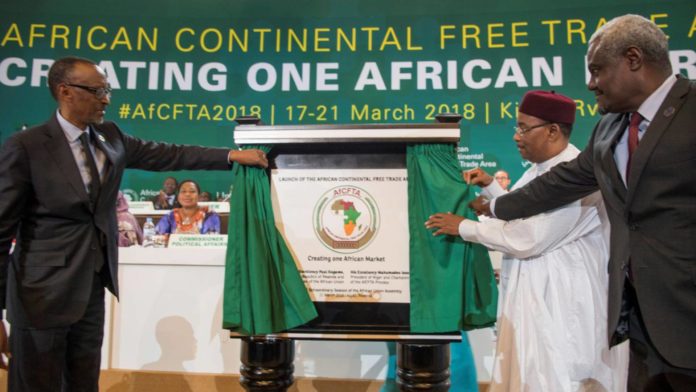The African Continental Free Trade Area’s (AfCFTA) entering into force is a laudable development, building on existing initiatives for regional integration and laying the groundwork for more. The immense support from countries and leaders across the continent is merited.
At the same time, however, AfCFTA’s strong political backing and the excitement surrounding its rapid progress has led to some claims of its potential benefits going unchallenged, particularly surrounding intra-African trade gains. Most commentators appear reluctant to interrogate publicly a popular pan-African project, even when this analysis might be constructive.
This is a problem because a misleading impression has been created that signatory countries should soon enjoy the benefits of improved trade levels. Specifically, following repeated citations by international organisations and the media, the estimate that AfCFTA will lead to a 52.3% increase in intra-African trade by 2022 is now widely taken as a given.
The African Union quotes this figure as if it were fact, while the UN Economic Commission for Africa (UNECA) and the United Nations Conference on Trade and Development (UNCTAD) suggest such an eventuality is “likely”.
Though seldom cited, this number comes from a paper presented in 2012 by two UNECA specialists to the 7th African Economic Conference. And, importantly, the report’s authors make clear that their projection of a 52.3% increase by 2022 – compared to a 2010 baseline – is based on several assumptions: a fully-liberalised and continent-wide trade area by 2017; harmonisation of external tariffs across the continent by 2019; and a series of practical trade facilitation measures.
However, here in 2019 none of these assumptions are reflective of the current situation.
CENTER FOR AFRICAN STUDIES
Center for Africa Studies (AFRAM) which located in Ankara, is an organization facilitating under the administration of African Affairs Council (AFAC). It makes various researches about Africa to enhance economic and cultural bounds between Africa and Turkey. AFRAM’s publishings has been shared with different institutions as they require to obtain.
AFRICA OBSERVATORY
Africa Observatory is one the publishing of AFRAM and it has been published each two weeks. It has been delivered to different institutions via e-mail.






